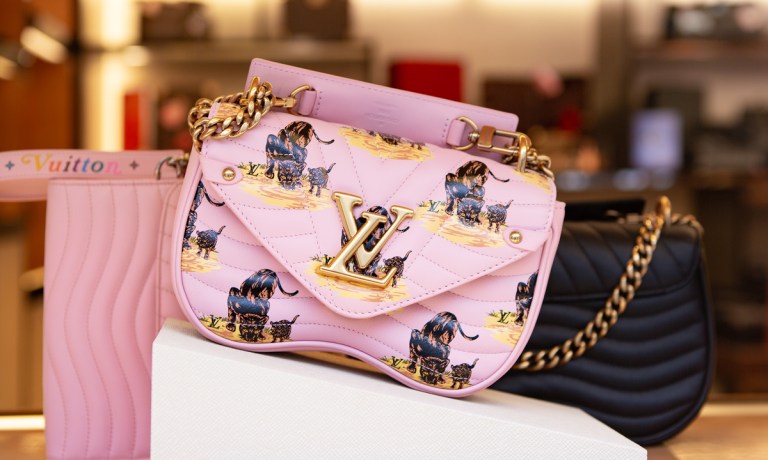But despite claiming the top spot, and the glimmer of hope Loewe provided, LVMH observed that it did not lead to an increase in spending among U.S. consumers.
Tuesday (July 25), the luxury giant LVMH reported a drop in U.S. sales during the second quarter. The company’s chief financial officer said there has been a decrease in shopping activity among aspirational customers compared to their previous habits.
During the second quarter, U.S. sales fell 1% year over year (YoY). In a similar fashion, earlier in the month, Richemont, the Swiss owner of Cartier, faced an unexpected decline in revenue from the Americas during the three-month period ending in June.
Read more: Richemont Confirms China’s Diminishing Role in Luxury Retail
During the earnings call Tuesday, LVMH CFO Jean-Jacques Guiony attributing the U.S. sales decline to a reduction in spending by aspirational consumers on entry-level products. While unable to pinpoint the precise reason for the decline, Guiony hinted that the waning impact of stimulus payments might have contributed to the sales drop.
Advertisement: Scroll to Continue
“If we assume that that group was benefitting from subsidies during COVID, those come to an end at some point,” Guiony said.
Guiony mentioned that LVMH’s high-priced goods are performing well in the U.S., possibly because wealthier shoppers are less affected by inflation, student debt, and economic fluctuations. However, the segment that felt the most significant impact was wine and spirits, particularly cognac.
According to Nielsen IQ data, the decline could be attributed to the surge in nonalcoholic spirit sales, nearly doubling their growth and outpacing the sales increase of nonalcoholic wine and beer.
Read also: Champagne Sales Fizzling as Sober Bars Spark
LVMH also acknowledged encountering challenges with inventory management during and after the pandemic, leading to difficulties in effectively controlling pricing and supply.
According to Guiony, the slowdown in U.S. sales was additionally influenced by Americans opting to vacation in Europe and purchase luxury goods in cities like Paris, Rome, or London instead of the U.S. LVMH sales in Europe grew 18% in the second quarter, with tourists contributing nearly half that growth.
Read also: Delta’s Optimism on Travel Spending Helps CE 100 Index Surge 3.3%
Last year, LVMH observed a similar shift in spending patterns, as Americans traveled to Europe in large numbers, which partially affected sales in the U.S.
On the flip side, China presented a contrast to the U.S., as LVMH reported a 17% increase in sales during the quarter, with a boost of 34% in Asia excluding Japan.
Guiony pointed out that despite signs of a slowdown in the broader Chinese economy, luxury spending in China remains “strong” since the easing of lockdowns late last year. LVMH’s Bulgari jewelry brand, a favorite in Asia, demonstrated robust results. In contrast, Tiffany, which relies more heavily on the U.S. market, had a weaker performance.
Guiony said that in the past, a significant portion of Chinese luxury purchases took place in Europe. However, recently most purchases are made in China and Japan due to the yen falling, causing prices to drop.
“There are big price differences between China and Japan. But we will see prices in Japan start to rise,” Guiony said.
LVMH by the Numbers
For the first half of 2023, LVMH revenue reached €42.2 billion, a 15% increase YoY. The second quarter of 2023 mirrored the trend seen in the first quarter, with organic revenue growth remaining steady at 17%.
Profit from recurring operations for the first half of 2023 rose 13% to €11,574 million, and the operating margin stood at 27.4% of total revenue.
Furthermore, LVMH’s net profit increased by 30% to reach €8,481 million during the first half of 2023.




